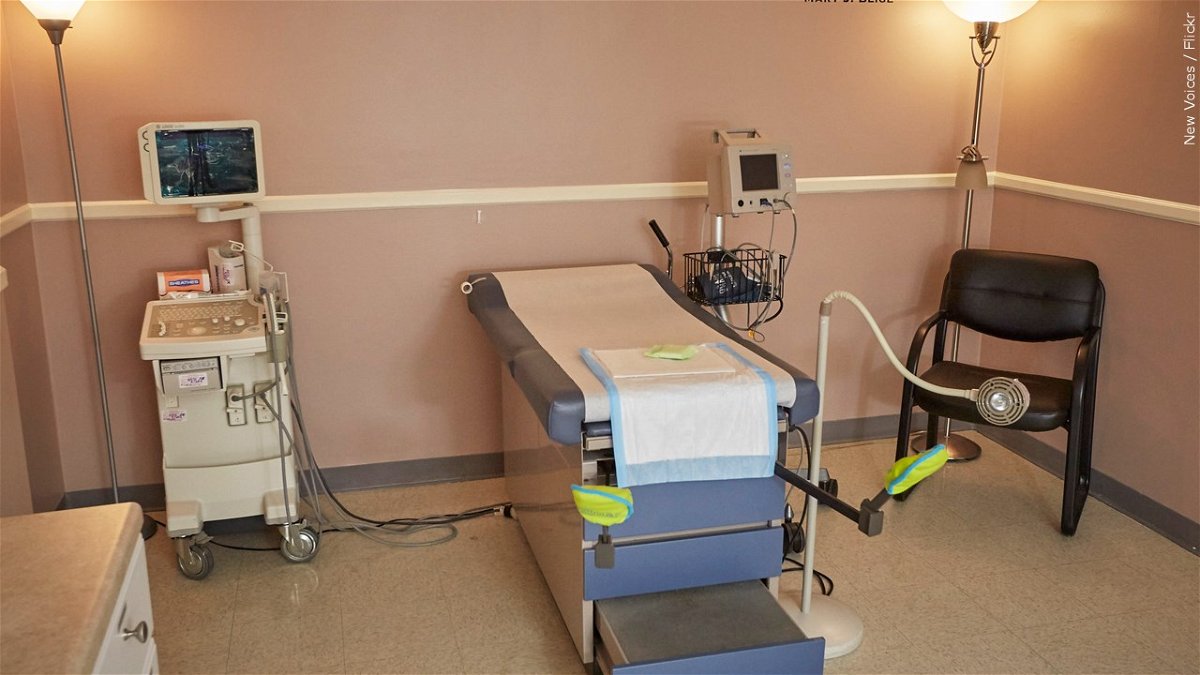Riverside County lawmakers divided over abortion inquest bill on Newsom’s desk

A proposed state law awaiting action by the governor seeking to end coroner's inquests into self-induced abortions and other prenatal losses that might lead to criminal investigations is an invitation to "back alley'' abortions, according to one Riverside County lawmaker, while another argues it will help secure "women's rights."
Gov. Gavin Newsom has until Sept. 30 to make a decision regarding Assembly Bill 2223, authored by Assemblywoman Buffy Wicks, D-Oakland, who described it publicly as a statute necessary to "ensure that women are protected" when they choose to end a pregnancy by "self-managed" means.
During floor votes in August, all Democratic lawmakers from Riverside County -- Assembly members Melissa Cervantes D-Corona, Eduardo Garcia, D-Indio, Jose Medina, D-Riverside, and Sen. Richard Roth, D-Riverside -- supported the bill.
All of the area's Republican lawmakers -- Assembly members Kelly Seyarto, R-Murrieta, and Randy Voepel, R-Idyllwild, along with Senators Rosilicie Ochoa Bogh, R-Beaumont, and Melissa Melendez, R-Lake Elsinore -- as well as Assemblyman Chad Mayes, I-Rancho Mirage opposed the legislation.
Melendez has been the most outspoken, releasing a statement recently calling AB 2223 "a failure of this (legislative) body to value life -- for both the mother and the unborn child."
"It's heartbreaking to think the majority party is comfortable de- criminalizing back alley abortions and jeopardizing the lives of pregnant women and their unborn children,'' the senator said.
Medina countered that the bill is one way to cement in state law "a woman's right to choose."
"AB 2223 was one of the many pro-choice bills that I proudly supported this year,'' the assemblyman told City News Service. "As other states criminalize abortion and restrict access to reproductive health, bills such as AB 2223 signal to the rest of our nation that California will continue to be a haven for safe access to health care and women's rights."
The bill is an expansion of the 2002 California Reproductive Privacy Act and was introduced in anticipation of the U.S. Supreme Court's majority decision in Dobbs v. Jackson Women's Health Organization earlier this summer. That decision upended the precedent set by the high court in 1973 with Roe v. Wade, which federally established legalized abortion throughout the United States.
Under Dobbs, states are now at liberty to self-regulate, or even outlaw, abortion. Californians will have an opportunity to decide whether to enshrine abortion rights in the state constitution when they vote on Proposition 1 in November.
AB 2223 would abolish provisions in the state Government and Health & Safety codes providing that coroners hold inquests in cases of suspected self-induced or criminal abortions.
The legislation expressly recognizes that a woman may be immune from prosecution or civil liability "based on their actions or omissions with respect to pregnancy, or an actual, potential or alleged pregnancy outcome."
"People (may choose) to end pregnancies by abortion, including self-managed abortion, which means ending one's own pregnancy outside of the medical system," according to the bill.
The legislation appears vague as to the legal limit for exercising a self-induced abortion, suggesting that it could go beyond five months into a pregnancy. It references the standard set under the Reproductive Privacy Act, which states that it's illegal to terminate a pregnancy when there's a "reasonable likelihood of the fetus' sustained survival outside the uterus."
Assembly analyses of the bill pointed to the use of "medication abortion," using mifepristone and misoprostol, but they also observed that self-managed abortion might involve "objects and herbs" to end the pregnancy.
"As the mother of five children, I will never understand how Democrats can be so quick to devalue human life,'' Melendez said. "I never thought I would see the day where death would be welcomed and celebrated with so much fanfare."
According to Wicks, one of the bill's objectives is to prevent unwarranted prosecutions in cases where a woman's pregnancy ended in a miscarriage, stillbirth, or by autonomous means that were not used for malicious reasons.
However, the Traditional Values Coalition argued in its opposition that AB 2223 "authorizes any person to facilitate late-term abortions and infanticide without legal repercussions. That means there is a great
possibility to remove much-needed civil and criminal penalties for killing babies born alive under almost any circumstances."
Planned Parenthood Affiliates of California asserted the bill is about preserving ``reproductive freedom by (affirming) people's right to be free from investigation, prosecution and incarceration based on pregnancy outcomes."
Temecula City Councilwoman Jessica Alexander is expected to seek a council vote next month on a resolution declaring opposition to AB 2223 and identifying the municipality as a "sanctuary for the unborn."
Whatever actions the city may take would be subject to state preemption, under which California law takes precedence over a municipality's directives.
A spokesman for the governor's office told CNS that the bill will be "evaluated on its merits."
